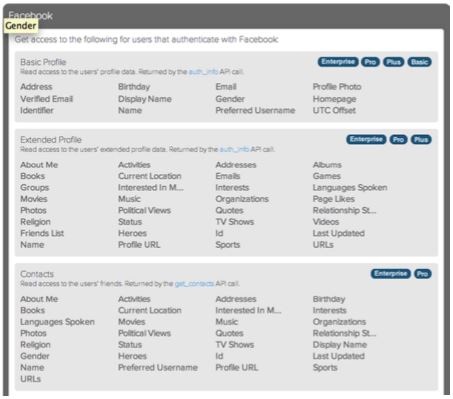I read a moving article on CNN.com about modern day slavery in Mauritania (see http://www.cnn.com/interactive/2012/03/world/mauritania.slaverys.last.
stronghold/index.html/). Yes, slavery still exists and 10-20% of the Mauritanian population is currently enslaved. What really hit me hard is that unlike traditional slavery involving chains and physical restraints, modern slavery is primarily mental. The hereditary slaves are born as slaves; they live in villages that have ceremonial fences. Anyone can walk away or run away, and yet very few do. They are so enmeshed in the culture that the thought of walking away doesn’t occur to them.
To quote from the article:
Fences that surround these circular villages are often made of long twigs, stuck vertically into the ground so that they look like the horns of enormous bulls submerged in the sand. Nothing ties these skeletal posts together. Nothing stops people from running.
But they rarely do.
And a similar form of mental servitude exists in (anti-) social media today. This month, the world celebrates the 10th anniversary of Facebook. What we’re really cerebrating is 10 years of ceaseless onslaught against freedom of speech, freedom of thought and freedom against self-incrimination – also known as the 1st, 4th and 5th amendments of the US constitution.
You could say that I am being hyperbolic in my characterization of Facebook as digital slavery, or that I’m taking poetic license and it’s not really fair to those who suffered, and still suffer, from the shackles of physical and financial servitude. Fair enough.
That said; let’s consider that in traditional slavery, the slave owner claimed ownership over the physical bodies and the output of physical labor from their slaves. Slaves grew cotton, sugarcane, raised cattle, etc and the masters took control of it.
In the modern era, our wealth isn’t generated from our sinews. We don’t break our backs toiling in the fields. Our wealth is intellectual in nature, digital in its form and that is being acquired for free from the lords of the internet.
- Facebook claims perpetual ownership on your posts, likes, dislikes, photos.
- Twitter claims perpetual ownership of your tweets, thoughts and stupidities.
- Instagram, Flickr, etc claim perpetual license on your images.
As Attorney Craig Delsack notes “you grant the social media sites a license to use your photograph anyway they see fit for free AND you grant them the right to let others use you picture as well! This means that not only can Twitter, Twitpic and Facebook make money from the photograph or video (otherwise, a copyright violation), but these sites are making commercial gain by licensing these images, which contains the likeness of the person in the photo or video (otherwise, a violation of their “rights of publicity”).”
Amazon controls what you get to read, and has deleted books from kindles remotely. Fittingly enough, the 1st book Amazon stole back from a paying customer was 1984. Apple claims similar rights on your iPhones, iPads, iTunes and has given itself the right to remotely block or uninstall books, movies, songs, etc.
So what exactly are you buying when you “buy” eBooks.from Amazon or Apple? What are you “buying” when you buy songs from Apple, Amazon, and Google? You’re “buying” the temporary right to read that book, watch that movie or listen to that song until the overlords decide that you’ve somehow violated their rights by travelling to a foreign country, visited wrong parts of the internet, etc. And any of these are grounds for them to delete content without reimbursement.
And how does Facebook fit into all of this?
In the 1970s and 1980s, we protested against the Communists and held up East German Stasi as particularly pernicious. At the height of its power, an estimated 10% of the East German population spied on their neighbors.
Today, approximately 128 Million Americans use Facebook. Every like, dislike, comment is private property of Facebook to be bought and sold like a commodity. Your thoughts, pictures, family photos and privacy are a good sold on the open market.

And what does Facebook provide to its real customers – the corporations and governments?
And that’s just a start…there’s much more that Facebook retains, and makes available to foreign governments.
I hear you. I hear your complaints. Without Facebook, how will you have a social life? How will you go out on dates? Or keep track of family get togethers? Without Facebook, how will you share the family photos?
Scholars find many similarities between modern Mauritanian slavery and that in the United States before the Civil War of the 1800s. But one fundamental difference is this: Slaves in this African nation usually are not held by physical restraints.
Just like the Mauritanian slaves who are held on farms, not by physical shackles, but cultural and mental ones that keep them enslaved. Even though all they have to do is walk away.
No violence, no guns, just put one foot in front of the other.
Will you raise your kids as digital slaves? Or will you walk away…one mouse click at a time?
References:
4th Amendment issues – http://www.businessinsider.com/police-make-fake-facebook-profiles-to-arrest-people-2013-10
1st Amendment Issues – http://www.huffingtonpost.com/tag/facebook-arrest
5th Amendment Issues – http://www.digitaltrends.com/social-media/the-new-inside-source-for-police-forces-social-networks/
1st, 4th, 5th Amendment issues – http://www.nbcnews.com/technology/careful-what-you-tweet-police-schools-tap-social-media-track-4B11215908
Copyright and IP Ownership – http://www.nyccounsel.com/business-blogs-websites/who-owns-photos-and-videos-posted-on-facebook-or-twitter/
Amazon erases 1984 from Kindle –http://www.nytimes.com/2009/07/18/technology/companies/18amazon.html
Further Reading:
https://www.brainlink.com/teach-your-kids-about-the-dangers-of-snapchat/
https://www.brainlink.com/prevent-your-kids-from-becoming-accidental-porn-stars/
https://www.brainlink.com/de-volkskrantdes-interview/
http://www.rajgoel.com/tag/panopticon/
